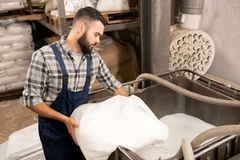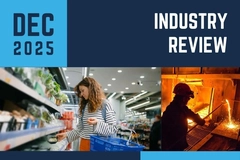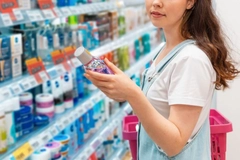Unilever and Too Good To Go slash food waste with home food delivery app
21 Dec 2022 --- Unilever and Too Good To Go’s latest pilot program allows consumers to have Unilever brands delivered directly to their door via an app, cutting costs and food waste. People can use the app to reserve and pick up discounted products that would otherwise be thrown away, from nearby restaurants, bakeries or supermarkets.
“The boxes include products whose best before date is a week to several months later than the time of purchase. Production planning tries to plan as efficiently as possible to avoid food waste. Nevertheless, it sometimes happens that the demand for products changes unexpectedly or unforeseen circumstances arise,” a Unilever spokesperson tells PackagingInsights.
“We have halved our food waste from production to supermarket shelves in the Netherlands in the past two years. Our work with Too Good To Go is part of that and this new opportunity to deliver products that can no longer be sold through regular channels directly to people’s homes is really exciting,” adds Debora van der Zee-Denekamp, general manager at Unilever Nutrition Northern Europe.
Shifting from collection to delivery
With 3.5 million users in the Netherlands alone, 16 million meals have already been saved from the bin and a new feature introduced to the app could help make that number grow.
In partnership with Unilever, Too Good To Go is now letting people across the Netherlands order a box of products from Knorr and other local brands, including Unox, Calvé and Conimex, to be delivered directly to their homes.
Giving consumers more direct access to products close to their sell-by date will increase the amount of good food saved, says Unilever. Giving consumers more direct access to products close to their sell-by date, combined with easier access for those who cannot pick up at designated times or who live outside participating cities, will hopefully increase the amount of good food saved.
The product boxes currently only contain Unilever products. “In the future, a box should consist of many more different products. Unilever and Too Good To Go are therefore calling on other food companies to join as well and reduce food waste together,” says the spokesperson.
Building on successes
Unilever and Too Good To Go have been collaborating since 2020. The partnership started with a pilot program in Rotterdam, the Netherlands, offering 1,000 boxes filled with products whose “best before” date was anywhere from a week to several months later than the time of purchase.
Unilever says that since the first project was successful, it was scaled up and, in total, saved more than 400,000 products. In September, Too Good To Go started offering a similar home delivery scheme in Denmark.
As part of the partnership, several brands, including Knorr and Hellmann’s, have also introduced a new “look, smell, taste – before you waste” label on their packaging, encouraging consumers to rely on their senses rather than just the “best before” date.
“The label is proven effective according to research by the Wageningen University [in the Netherlands] and makes consumers trust their senses more often, rather than just the ‘best before date,’” asserts the Unilever spokesperson.
Slashing food waste
Unilever stresses that the consumer goods company aims to halve food waste across all its operations from factory to shelf by 2025. “But we can’t do it alone, which is why we’re working with partners across the food chain, including Too Good To Go, to change the system and help end food waste,” highlights van der Zee-Denekamp.
Earlier this month, WRAP released its annual progress reports for the UK food, textiles and plastics industries, detailing data regarding companies’ continued efforts to reach environmental targets. The report found a reduction in edible food waste and concurrent greenhouse gas emissions from companies involved in WRAP’s initiative, although it also highlighted a need for an acceleration of efforts.
Our vision is for a thriving world in which climate change is no longer a problem,” Richard Swannell, Interim CEO of WRAP, told FoodIngredientsFirst.
Meanwhile, WRAP UK claimed that plastic packaging could actually increase fresh produce waste for some uncut items. However, the plastics industry has questioned whether the report’s scope limits the conclusions that can be drawn. In an interview with PackagingInsights, Helen Bird, strategic engagement manager at WRAP, responded to these concerns and shared insights on how further evidence on food waste can be accumulated.
Several retailers, such as Marks&Spencer and Asda, started to reduce the usage of best before labels on products to reduce food waste. Such changes have been designed to encourage customers to use their judgment to throw away less edible food at home.
By Natalie Schwertheim










